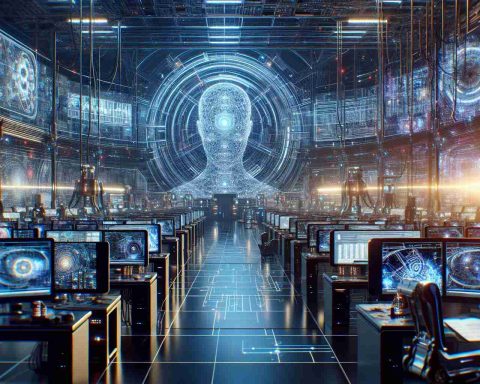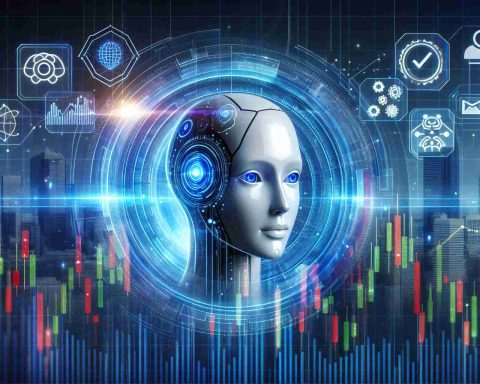The future of computing is being reshaped as Google Quantum AI partners with Nvidia, leveraging their groundbreaking CUDA-Q platform and the Eos supercomputer to advance quantum computing technology.
Google Quantum AI is pushing the boundaries of science by using the CUDA-Q platform to simulate the physical properties of its quantum processors with unprecedented accuracy and speed. The collaboration aims to tackle the issue of “noise,” a major constraint in current quantum computing systems that limits the number of operations they can perform before errors creep in.
A research scientist at Google Quantum AI explained that achieving commercially viable quantum computers requires expanding quantum hardware capabilities while minimizing noise interference. By utilizing Nvidia’s cutting-edge technology, Google is diligently exploring how larger quantum chip designs can handle these noise challenges.
The integration of the CUDA-Q platform allows for dynamic simulations of quantum devices, enabling researchers to gain deeper insights into hardware design. Moreover, what once required extensive time and resources can now be simulated swiftly and cost-effectively.
The platform will be publicly accessible, providing the broader scientific community with the ability to perform simulations that once seemed out of reach.
Nvidia’s role underscores the profound impact of AI-driven supercomputing in propelling quantum computing to practical application, highlighting the transformative power of GPU-accelerated simulations.
The potential for quantum computing to revolutionize fields such as artificial intelligence, medicine, and cryptography is immense, and Google’s recent initiatives are poised to lead the charge in bringing these quantum dreams to fruition.
Unlocking the Secrets of Quantum Computing: Tips, Hacks, and Fascinating Insights
The partnership between Google Quantum AI and Nvidia is a giant leap forward in the realm of quantum computing. This collaboration is not just a glimpse into the future, but a significant stride towards making quantum technology a practical reality. Here, we explore some tips, life hacks, and interesting facts related to this groundbreaking field.
Understanding the Significance of Quantum Noise
Noise in quantum computing refers to errors that can arise during quantum operations due to interactions with the environment. Minimizing noise is crucial for achieving reliable results. One practical tip is staying informed about advances in error correction techniques. These methods are continually evolving and are key to minimizing noise interference, making your use of quantum technology more effective.
Leveraging Nvidia’s CUDA Platform
The Nvidia CUDA-Q platform is central to Google’s simulations, allowing unprecedented accuracy and speed. For developers and researchers, familiarizing yourself with CUDA programming can be a game-changer. This can be done through Nvidia’s comprehensive resources and tutorials available on their main site.
Explore the Public Access to Quantum Simulations
The democratization of quantum simulations is a thrilling development, as the platform is being made widely accessible. This openness allows more researchers and developers to experiment and innovate without the need for expensive, high-end hardware. Dive into available resources and start experimenting with quantum simulations to understand their potential firsthand.
The Future is Bright for AI and Quantum Synergy
AI is expected to be one of the first fields to benefit from quantum computing. The interplay between AI and quantum computing can lead to faster problem-solving capabilities and more sophisticated algorithms. Keeping an eye on developments in this field could present unexpected career opportunities or inspire groundbreaking research.
Interesting Fact: Quantum Computing’s Vast Potential
One fascinating aspect of quantum computing is its ability to perform certain calculations significantly faster than traditional computers. For example, solving complex cryptographic problems or simulating molecular interactions for drug discovery can be exponentially accelerated, potentially saving researchers years of work.
As the field progresses, staying updated and proactive with emerging quantum technology is crucial for anyone interested in this cutting-edge domain. The future holds incredible possibilities, and understanding these concepts today could make you a part of tomorrow’s technological revolution.






















